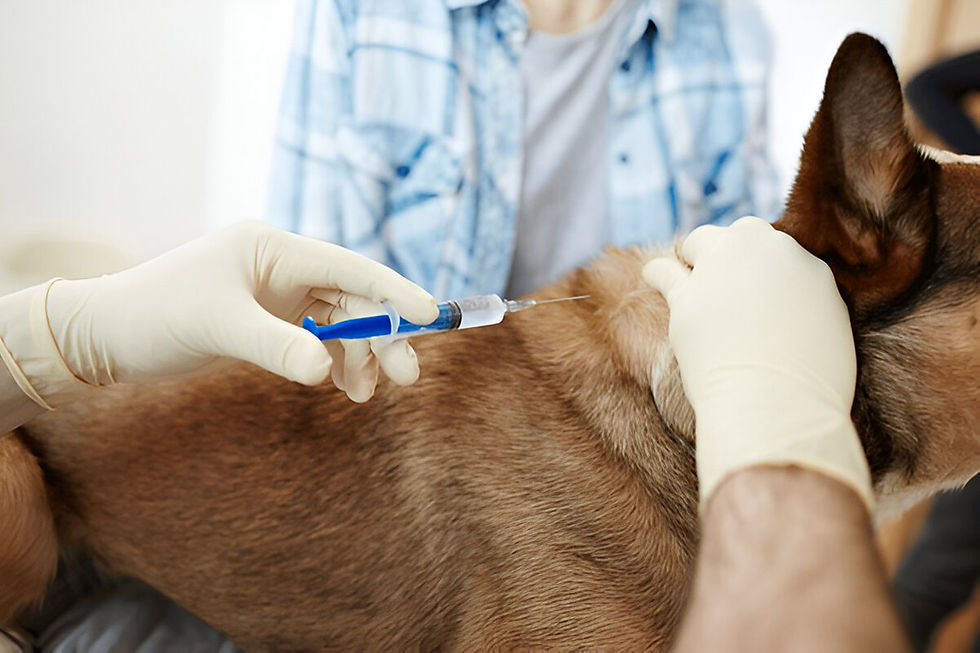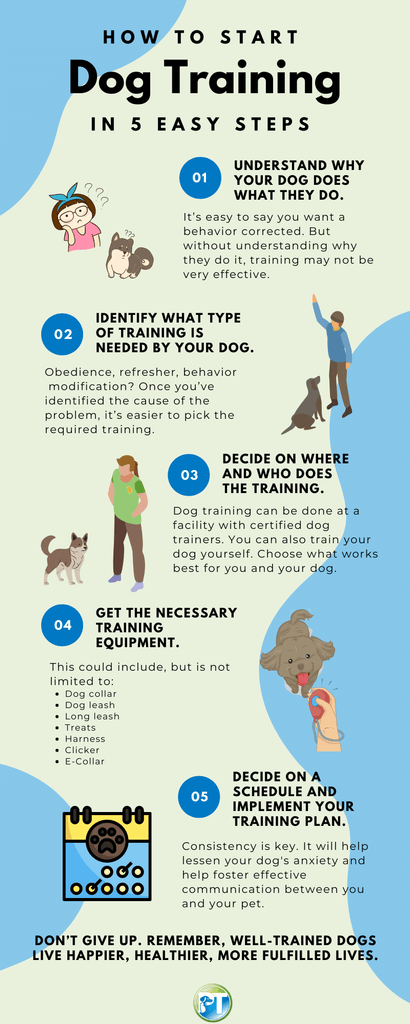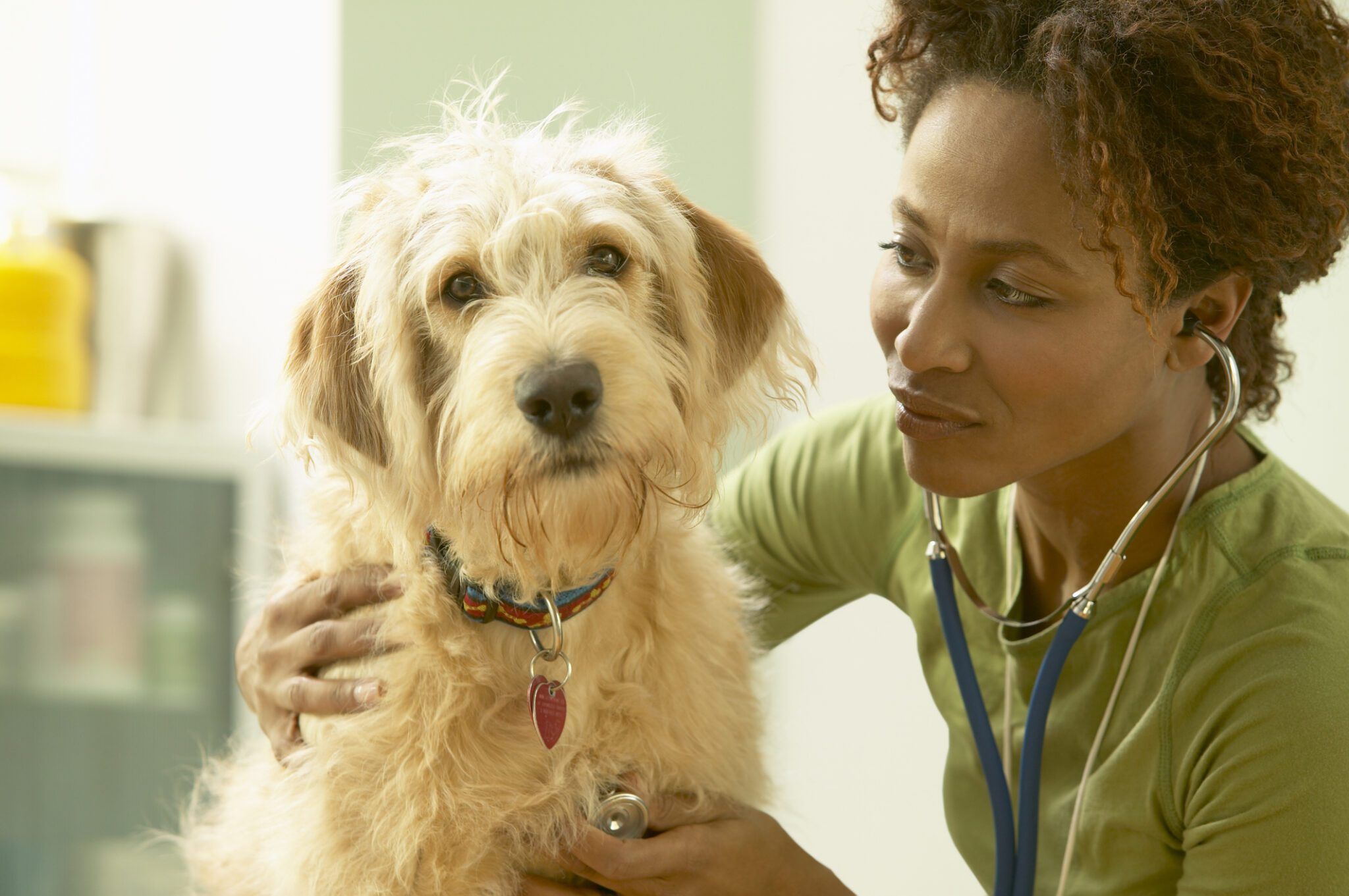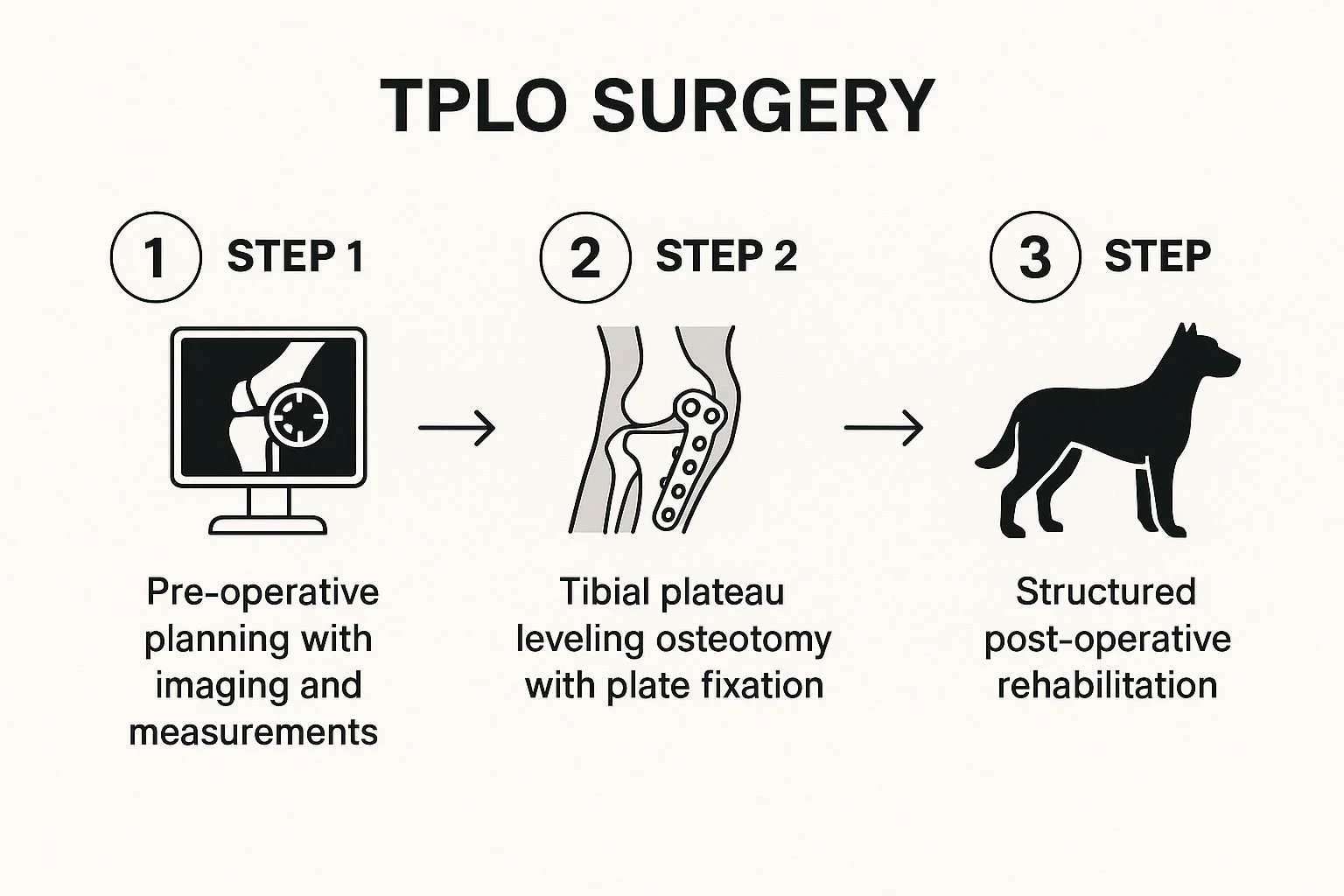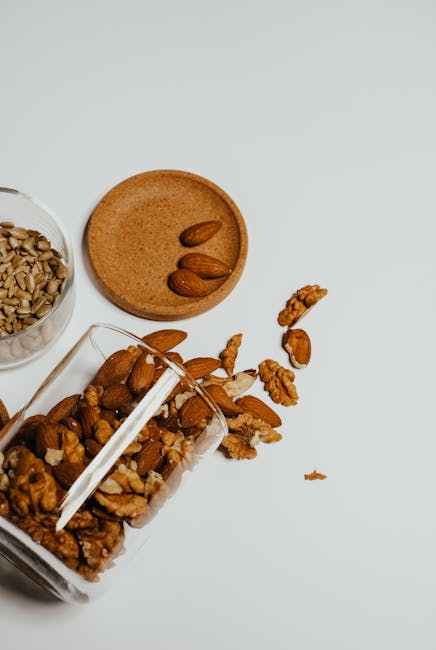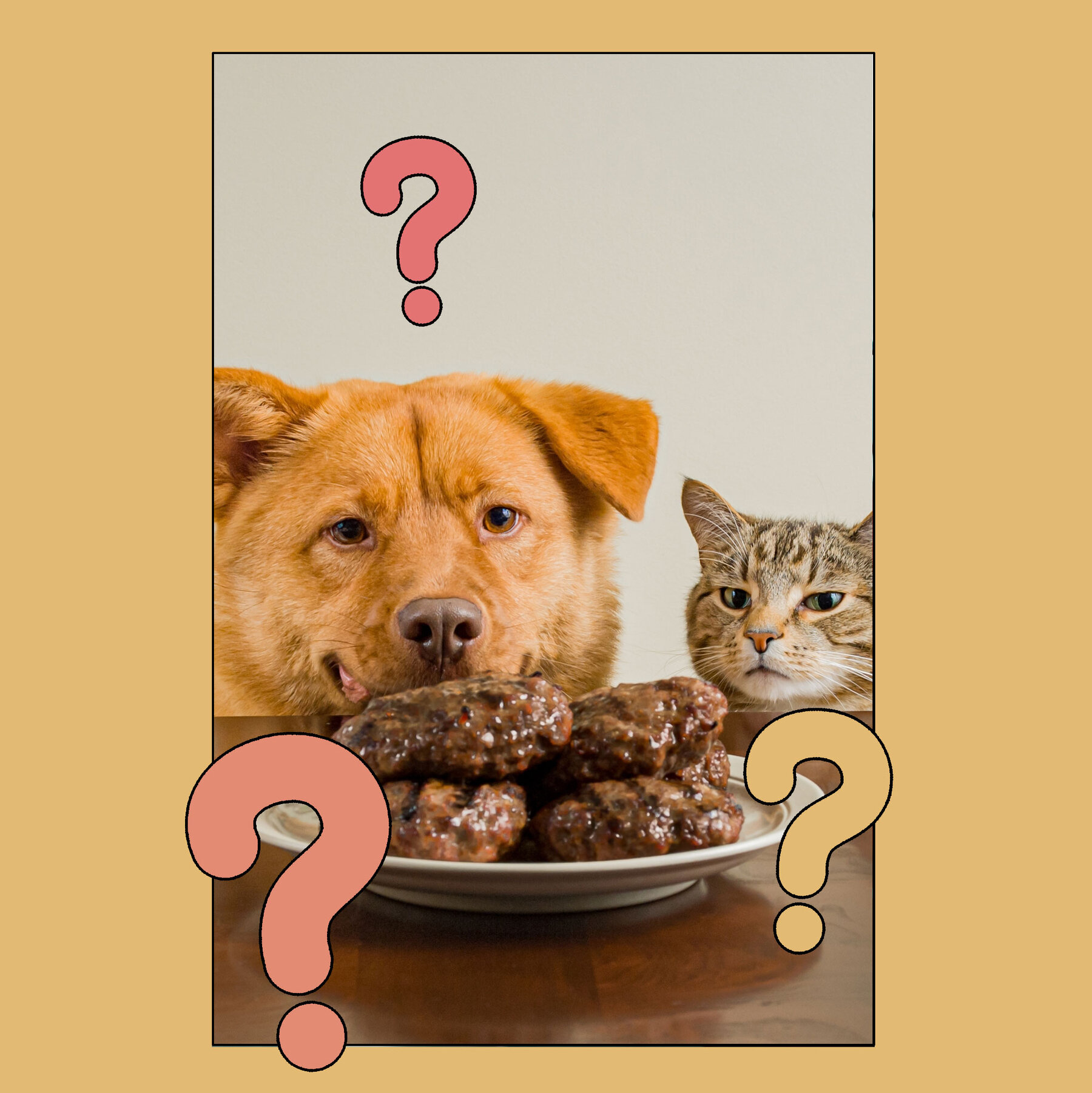Have you ever wondered if your furry friends—your dogs and cats—need the same nutrients you do to stay healthy? You might be surprised to learn that what’s good for you isn’t always good for them.
Understanding the differences and similarities in nutritional needs can help you make better choices for your pets’ diet. Keep reading to discover how your nutrition compares to theirs, and why this matters for your pet’s health and happiness.
Comparing Human And Pet Diets
Humans and their pets often share a close bond, but their diets differ significantly. Understanding these differences helps provide better nutrition for both. Comparing human and pet diets reveals unique needs shaped by evolution and lifestyle.
Basic Nutrient Needs
Both humans and pets require essential nutrients to live and grow. These include proteins, fats, carbohydrates, vitamins, and minerals. Humans need a balanced mix from plant and animal sources. Dogs and cats rely more on animal proteins and fats. Cats, especially, need certain nutrients only found in meat, like taurine.
Differences In Metabolism
Metabolism controls how the body uses food for energy. Humans digest carbohydrates easily and use them as a main energy source. Dogs can digest carbs but thrive on protein and fat. Cats are obligate carnivores, meaning their metabolism depends heavily on meat. Their bodies process nutrients differently, requiring diets high in animal-based ingredients.
Role Of Macronutrients
- Proteins:Vital for tissue repair and growth in all species. Pets need more protein than humans.
- Fats:Provide energy and support cell function. Cats need specific fats found only in animal tissue.
- Carbohydrates:Main energy source for humans. Pets use carbs less efficiently, especially cats.
Each species needs these macronutrients in different amounts and forms. Feeding the right balance keeps pets healthy and humans energetic.
Essential Vitamins And Minerals
Vitamins and minerals are the building blocks of good health, not just for you but also for your pets. While humans, dogs, and cats all need these nutrients, the amounts and types can vary widely. Understanding these differences can help you provide the right nutrition for your furry friends and avoid common mistakes.
Vitamin Requirements
Humans require vitamins like A, C, D, E, K, and the B-complex to support immune function, energy production, and overall wellness. Dogs share many of these needs but don’t require vitamin C because their bodies produce it naturally. Cats, however, need vitamin A from animal sources, as they cannot convert beta-carotene from plants like humans do.
Have you ever noticed your dog eagerly eating grass? Sometimes, they seek certain nutrients naturally missing from their diet. This behavior highlights how crucial it is to tailor vitamin intake to each species.
Mineral Needs
Minerals such as calcium, phosphorus, potassium, and magnesium play vital roles in bone strength, muscle function, and nerve signaling. Dogs and cats generally require higher protein and mineral content compared to humans, especially cats who are obligate carnivores. For instance, cats need more taurine, an amino acid linked to heart and eye health, which humans and dogs can synthesize.
Balancing these minerals is essential. Too little can lead to deficiencies, while too much can cause toxicity. You might want to check the labels on pet foods to ensure they meet your pet’s specific mineral needs.
Toxicity Risks
Some vitamins and minerals safe for humans can be harmful or even deadly to pets. For example, vitamin D overdoses can cause kidney failure in dogs and cats. Similarly, excess iron or zinc can lead to poisoning.
Think about sharing your supplements or leftovers with your pet. Could that be putting them at risk? Always consult a vet before adding any vitamin or mineral supplements to your pet’s diet.
Protein Sources And Quality
Protein plays a crucial role in the diets of humans, dogs, and cats. It supports growth, repair, and overall health. Understanding the sources and quality of protein helps meet these needs effectively. Differences in digestive systems and metabolic demands influence how each species uses protein.
Animal Vs Plant Proteins
Animal proteins come from meat, fish, eggs, and dairy. They provide all essential amino acids humans and pets need. Plant proteins come from beans, grains, nuts, and seeds. These often lack one or more essential amino acids.
Humans can combine plant proteins to get complete nutrition. Dogs benefit from animal proteins but can digest some plant proteins. Cats require mostly animal proteins due to their strict carnivore nature.
Protein Digestibility
Digestibility measures how well protein is absorbed and used. Animal proteins generally have higher digestibility for humans, dogs, and cats. Plant proteins often contain fiber and anti-nutrients that reduce digestibility.
High digestibility means more usable protein from the same amount consumed. Pet food manufacturers focus on highly digestible protein sources to ensure pets get enough nutrition.
Amino Acid Profiles
Amino acids are building blocks of protein. Essential amino acids must come from the diet. Humans and dogs need nine essential amino acids. Cats need all nine plus taurine, which is found mainly in animal tissue.
Animal proteins provide a balanced amino acid profile for all three species. Plant proteins often miss key amino acids needed by dogs and cats. Taurine deficiency in cats can cause serious health issues.
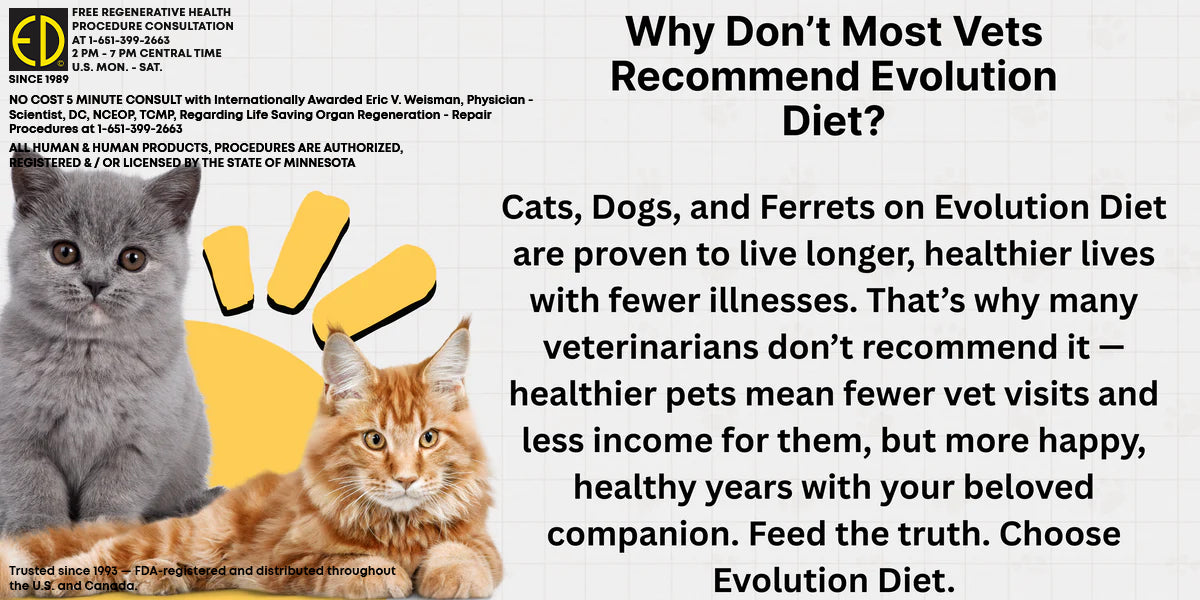
Credit: petfoodshop.com
Fats And Fatty Acids
Fats and fatty acids play a vital role in the diets of both humans and pets like dogs and cats. They provide energy, support cell growth, and help absorb essential vitamins. Despite some similarities, the types and amounts of fats needed can differ between species. Understanding these differences helps in choosing the right food for each.
Types Of Fats Needed
Humans and pets require three main types of fats:
- Saturated fats
- Monounsaturated fats
- Polyunsaturated fats
Both humans and animals need essential fatty acids. These cannot be made by the body and must come from food. Dogs and cats especially need certain fats for healthy skin and coat.
Omega-3 And Omega-6 Balance
Omega-3 and omega-6 fatty acids must be balanced for good health. These fats support brain function, reduce inflammation, and promote heart health. Dogs and cats often need a higher omega-3 intake than humans. Too much omega-6 can cause inflammation in pets and people alike. Proper balance improves overall well-being and vitality.
Fat Digestion Differences
Dogs and cats digest fats differently than humans. Cats are obligate carnivores, needing more animal-based fats. Dogs are omnivores and digest plant and animal fats well. Humans process fats using bile and enzymes, similar to dogs but more efficient. Cats have a shorter digestive tract, so they absorb fats faster. These differences affect the type of fat included in their diets for optimal health.
Carbohydrate Utilization
Carbohydrates are a primary energy source for many living beings, but how they are used varies significantly between humans, dogs, and cats. Understanding these differences can help you make better dietary choices for yourself and your pets. Let’s explore how carbohydrate utilization differs across species and what it means for energy and nutrition.
Humans As Omnivores
Humans thrive on a mixed diet that includes carbohydrates, proteins, and fats. Our digestive systems are designed to break down starches and sugars efficiently, turning them into glucose, which fuels our brain and muscles.
You might notice how you feel energized after eating a bowl of oatmeal or a sandwich. That’s because your body relies heavily on carbohydrates for quick and sustained energy. Unlike strict carnivores, you can also benefit from fiber in carbs, which supports healthy digestion.
Dogs And Cats As Carnivores
Dogs and cats have evolved primarily as carnivores, with digestive systems optimized for protein and fat rather than carbohydrates. Cats, in particular, are obligate carnivores, meaning they require nutrients found only in meat.
While dogs can digest some carbohydrates, their ability to process large amounts is limited compared to humans. Cats have even less capacity for carbohydrate digestion and often show no need or desire for carb-heavy foods.
Impact On Energy Levels
Because humans efficiently use carbohydrates for energy, you might feel sluggish if your diet lacks them. Your brain especially depends on glucose, so skipping carbs can affect your focus and mood.
In contrast, dogs and cats draw most of their energy from proteins and fats. Feeding them high-carb diets can lead to weight gain, digestive issues, or energy dips that you might not expect.
Have you ever noticed how your dog seems less energetic after eating certain treats? This could be linked to carbohydrate content and how well their system handles it. Paying attention to these signs can help you tailor diets that match your pet’s natural needs.
Special Dietary Considerations
Special dietary needs vary greatly between humans, dogs, and cats. Each species has unique nutritional demands shaped by their biology and lifestyle. Understanding these differences helps provide proper care and maintain health.
Pets require diets tailored to their specific requirements. Age, health issues, and sensitivities influence what they can safely eat. Ignoring these factors may lead to poor nutrition or illness.
Age And Life Stage Needs
Young animals need more calories and nutrients for growth. Puppies and kittens require diets rich in protein and fat to support development. Adult pets need balanced meals to maintain weight and health. Senior dogs and cats often need fewer calories but more fiber and joint support.
Health Conditions Affecting Diet
Chronic illnesses change dietary needs drastically. Dogs with kidney disease benefit from low-protein diets. Cats with diabetes require controlled carbohydrate intake. Pets with heart problems may need reduced sodium. Tailored diets improve quality of life and manage symptoms.
Allergies And Sensitivities
Food allergies are common in pets and humans alike. Symptoms include itching, digestive upset, and ear infections. Common allergens are beef, dairy, wheat, and chicken. Elimination diets help identify triggers. Hypoallergenic pet foods reduce reactions and improve comfort.
Risks Of Sharing Human Food
Sharing human food with pets might seem harmless. Pets often beg during meals, and giving in feels natural. Yet, many human foods can harm dogs and cats. Their bodies process food differently. What is safe for humans can be risky or toxic for pets. Knowing these risks helps protect your furry friends from health problems.
Toxic Foods For Pets
Several common foods are poisonous to dogs and cats. Chocolate contains theobromine, which affects their heart and nerves. Grapes and raisins can cause kidney failure. Onions and garlic damage red blood cells, leading to anemia. Xylitol, a sweetener in gum and candy, causes dangerous drops in blood sugar and liver damage. Avoid feeding these foods to pets at all costs.
Nutrient Imbalances
Human food lacks the right balance of nutrients for pets. Dogs and cats need specific vitamins, minerals, and proteins. Feeding table scraps can lead to deficiencies or excesses. Too much fat causes obesity and pancreatitis. Too little protein affects muscle health. A diet not tailored to pets can weaken their immune system and overall health.
Digestive Issues
Pets have sensitive digestive systems. Rich or spicy human foods can cause upset stomach. Vomiting, diarrhea, and gas are common signs. Sudden diet changes stress the gut and disrupt good bacteria. Bones from cooked meat can splinter and block intestines. Feeding pets only their recommended diet helps maintain smooth digestion and comfort.

Credit: www.businessminutes.in
Formulating Balanced Pet Diets
Balancing a pet’s diet is more complex than it might seem at first glance. Dogs and cats have nutritional needs that differ significantly from humans, requiring careful attention to the types and amounts of nutrients they consume. Understanding how to create a balanced diet for your furry friend helps you support their health and longevity effectively.
Commercial Pet Food Standards
Commercial pet foods are regulated to meet specific nutritional guidelines set by organizations like the Association of American Feed Control Officials (AAFCO). These standards ensure that the food contains essential nutrients in the right proportions, tailored for different life stages and species.
When you pick a commercial brand, check the label for statements confirming it meets AAFCO or equivalent standards. This helps you avoid nutritional gaps that can cause serious health problems over time.
Homemade Diet Challenges
Preparing homemade meals for your dog or cat might seem like a healthier option, but it comes with challenges. Without proper knowledge, it’s easy to miss critical nutrients like taurine for cats or the right balance of calcium and phosphorus for dogs.
I once tried making homemade food for my cat, but without a vet’s guidance, she ended up with a deficiency. This experience taught me how vital it is to consult professionals and possibly use recipes designed by pet nutrition experts.
Supplementation Needs
Even with balanced commercial or homemade diets, some pets may require supplements to fill nutritional gaps. For example, omega-3 fatty acids support coat health, while probiotics aid digestion.
Always discuss supplementation with your vet to tailor it to your pet’s specific needs. Over-supplementing can be just as harmful as deficiencies, so precise dosing matters a lot.
Future Trends In Pet Nutrition
The future of pet nutrition is rapidly evolving, reflecting new research and changing lifestyles. Pet owners today are more aware of their animals’ health needs and seek options beyond traditional pet foods. This shift opens up exciting possibilities for how we feed our dogs and cats, making their diets smarter and more tailored.
Personalized Nutrition
Imagine a diet designed just for your pet’s unique needs. Personalized nutrition uses data like age, breed, activity level, and health conditions to create customized meal plans.
This approach helps address specific issues such as allergies or digestive problems. Have you ever noticed how your dog reacts differently to certain foods? Personalized diets can reduce those trial-and-error moments by offering precise nutrition.
Sustainability In Pet Foods
More pet owners want food options that are good for their pets and the planet. Sustainable pet foods focus on ingredients with lower environmental impact, such as plant-based proteins or insect meals.
Switching to these alternatives can help reduce carbon footprints without sacrificing nutrition quality. Would you consider a meal that’s eco-friendly but still appeals to your pet’s taste buds?
Technological Innovations
Technology is transforming how pet food is created and delivered. Smart feeders, apps for tracking nutrition, and lab-grown ingredients are becoming part of the pet nutrition landscape.
These innovations provide convenience and ensure your pet gets exactly what they need at the right time. How could technology change the way you manage your pet’s diet in the next five years?

Credit: www.facebook.com
Frequently Asked Questions
Do Humans And Pets Need Similar Nutrients?
Humans and pets need some similar nutrients like proteins, fats, and vitamins. However, their dietary ratios differ. Pets require specific nutrients like taurine for cats and certain amino acids for dogs. It’s crucial to cater their diet to their species-specific needs for optimal health.
Can Pets Eat Human Food Safely?
Some human foods can be safe for pets, while others are harmful. Foods like chocolate, onions, and grapes can be toxic. Always check which foods are safe for your pet before sharing your meal. It’s best to feed pets food specifically formulated for their nutritional needs.
How Do Pet Diets Differ From Human Diets?
Pet diets differ in nutrient composition and ratios. Cats need high protein, while dogs require balanced nutrients. Humans have varied diets, including carbohydrates. Pets need specially formulated food to meet their nutritional requirements. Always consult a veterinarian for advice on a suitable diet for your pet.
Are Supplements Necessary For Pets?
Supplements can be necessary for pets with specific health needs or deficiencies. However, a balanced diet usually provides essential nutrients. Consult a vet before adding supplements to your pet’s diet. Over-supplementation can lead to health issues, so professional guidance is crucial for safe supplementation.
Conclusion
Humans, dogs, and cats need different types of food to stay healthy. Each species requires unique nutrients for their body to work well. Feeding pets the same food as humans can cause problems. Pet diets should meet their specific needs for energy and growth.
Choosing the right food helps pets live longer and feel better. Understanding these differences supports better care for your furry friends. Always consult a vet for proper nutrition advice. Good nutrition keeps pets happy and healthy every day.

